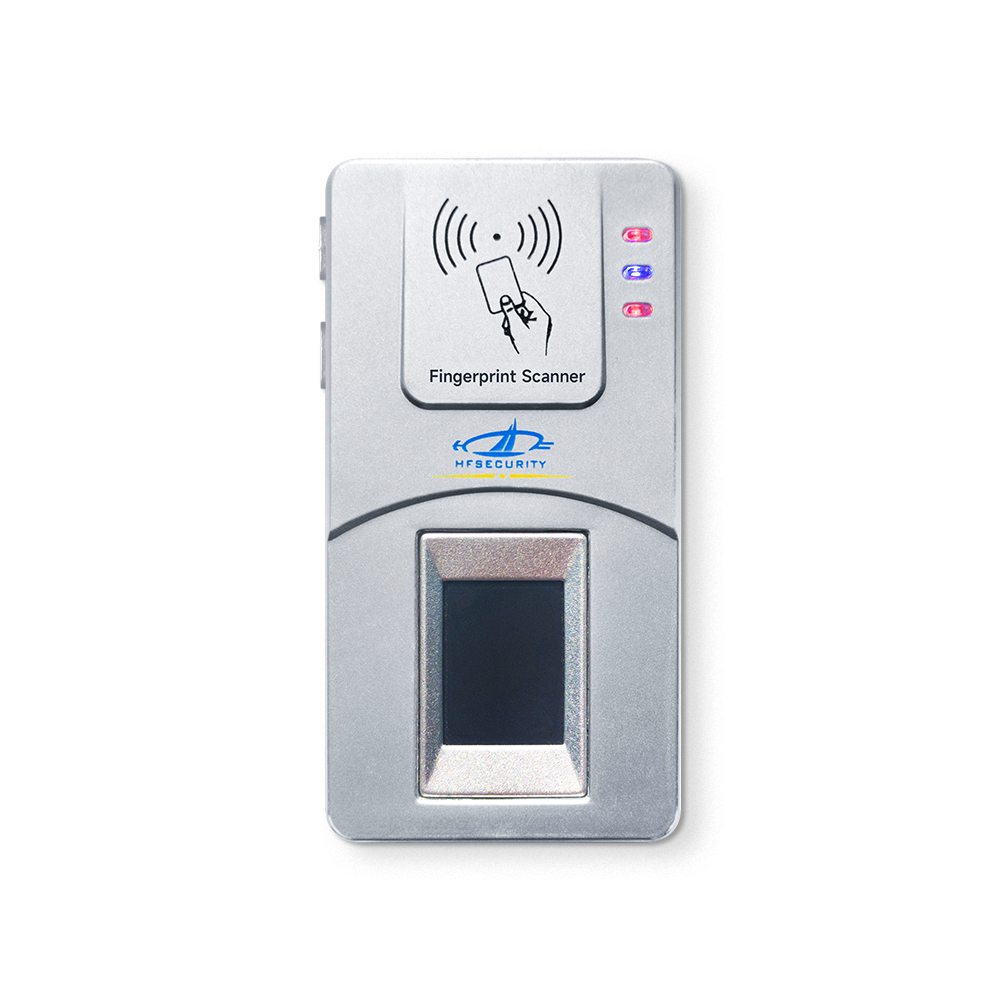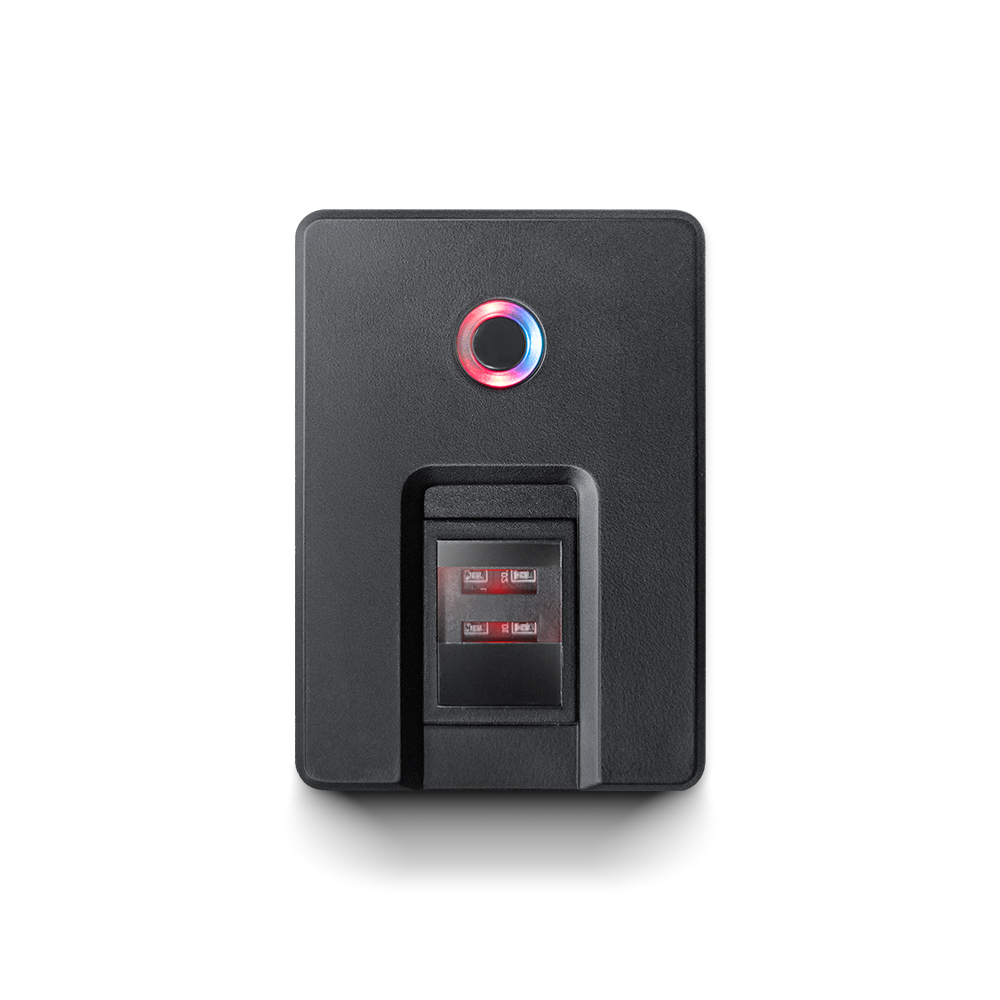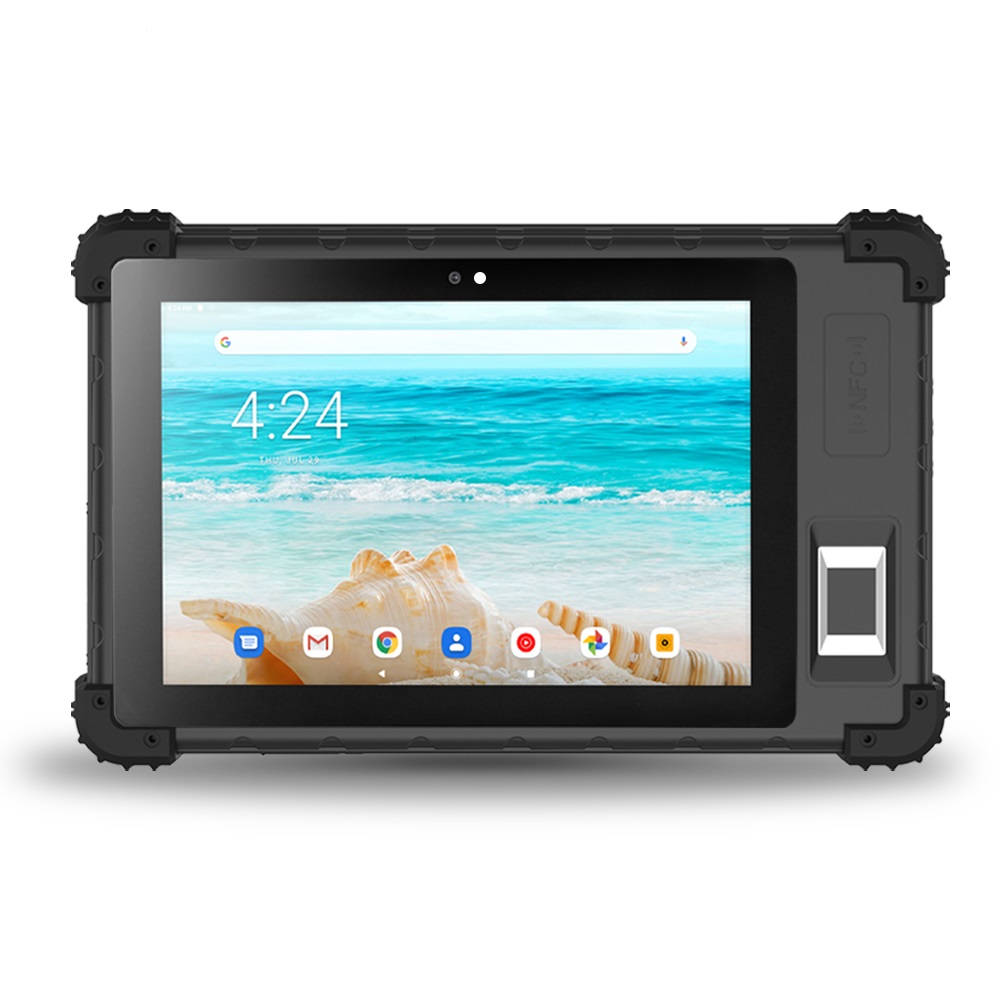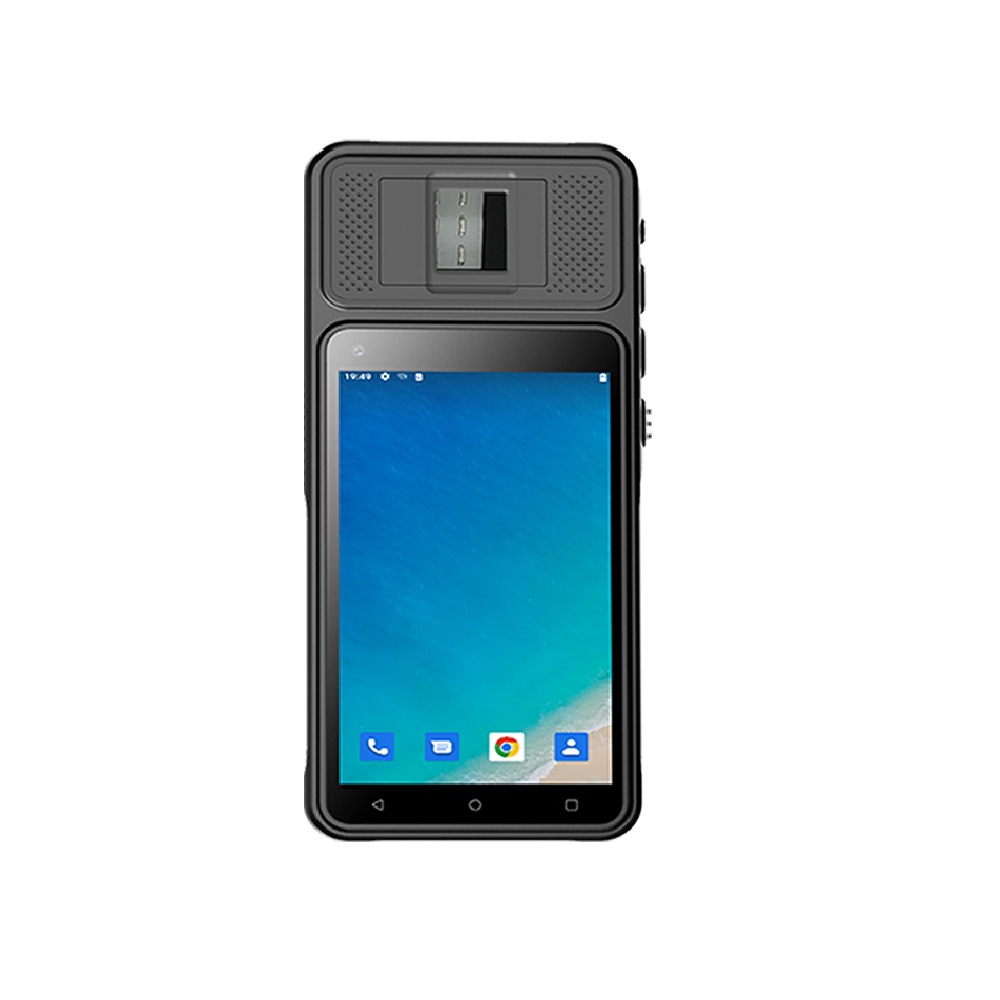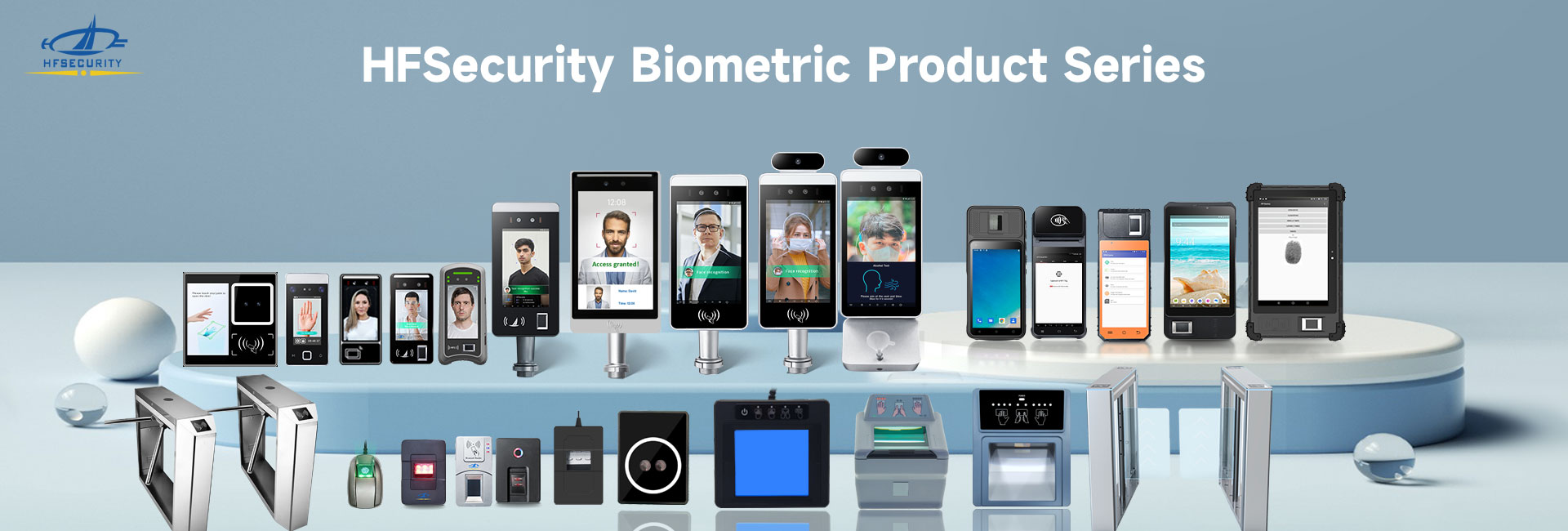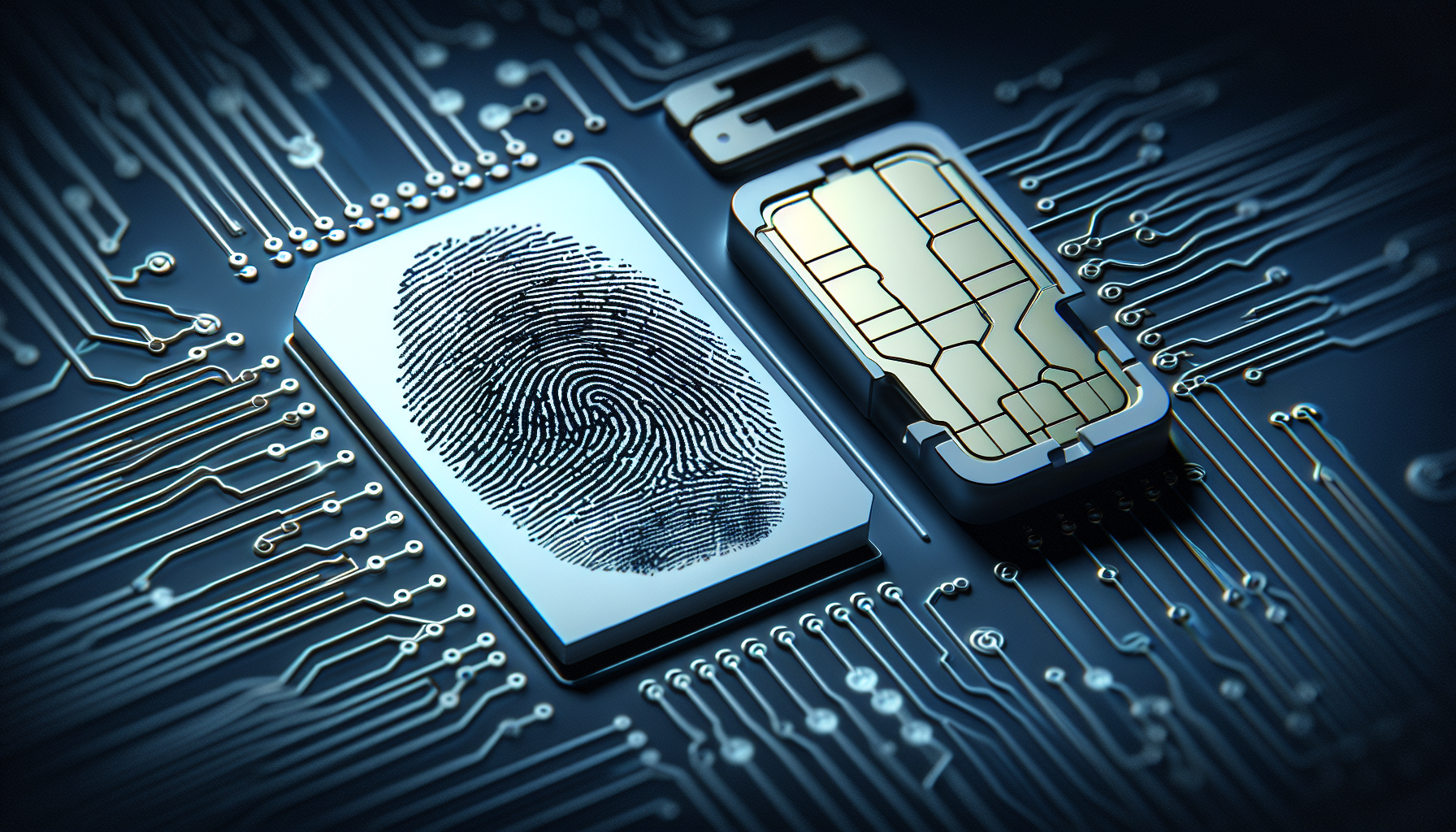
In the world of digital identity authentication, biometric technology has ushered in a revolution in improving security and convenience. This technology has now been extended to SIM card registration and management, bringing unprecedented protection and efficiency. The rise of biometric SIM cards marks a big leap in personal identity verification methods, leveraging our most unique biometrics – fingerprints, facial recognition, and even iris scans.
Why does the concept of a biometric SIM card appear? The fundamental reason is that the security issues of traditional SIM cards have gradually become more prominent, SIM card cloning and identity theft have become increasingly serious, and there is an urgent need for more advanced security mechanisms to protect users’ communications and personal information. In addition, government requirements to enhance national security have also driven the adoption of biometric technology.
In the world of communications, SIM cards have played a central role since their inception. However, as security threats continue to evolve, the incorporation of biometrics has escalated the importance of the SIM card. Biometric SIM cards not only enhance the security of user authentication but also mark a major advancement in our information protection strategies.
A biometric SIM card is essentially an innovative product that combines the functionality of a traditional SIM card with biometric data recognition technology. This type of SIM card can store a user’s fingerprint, facial recognition, or other biometric information to provide a more secure method of user authentication. The application of this new technology significantly reduces the risk of SIM cards being copied or used illegally.
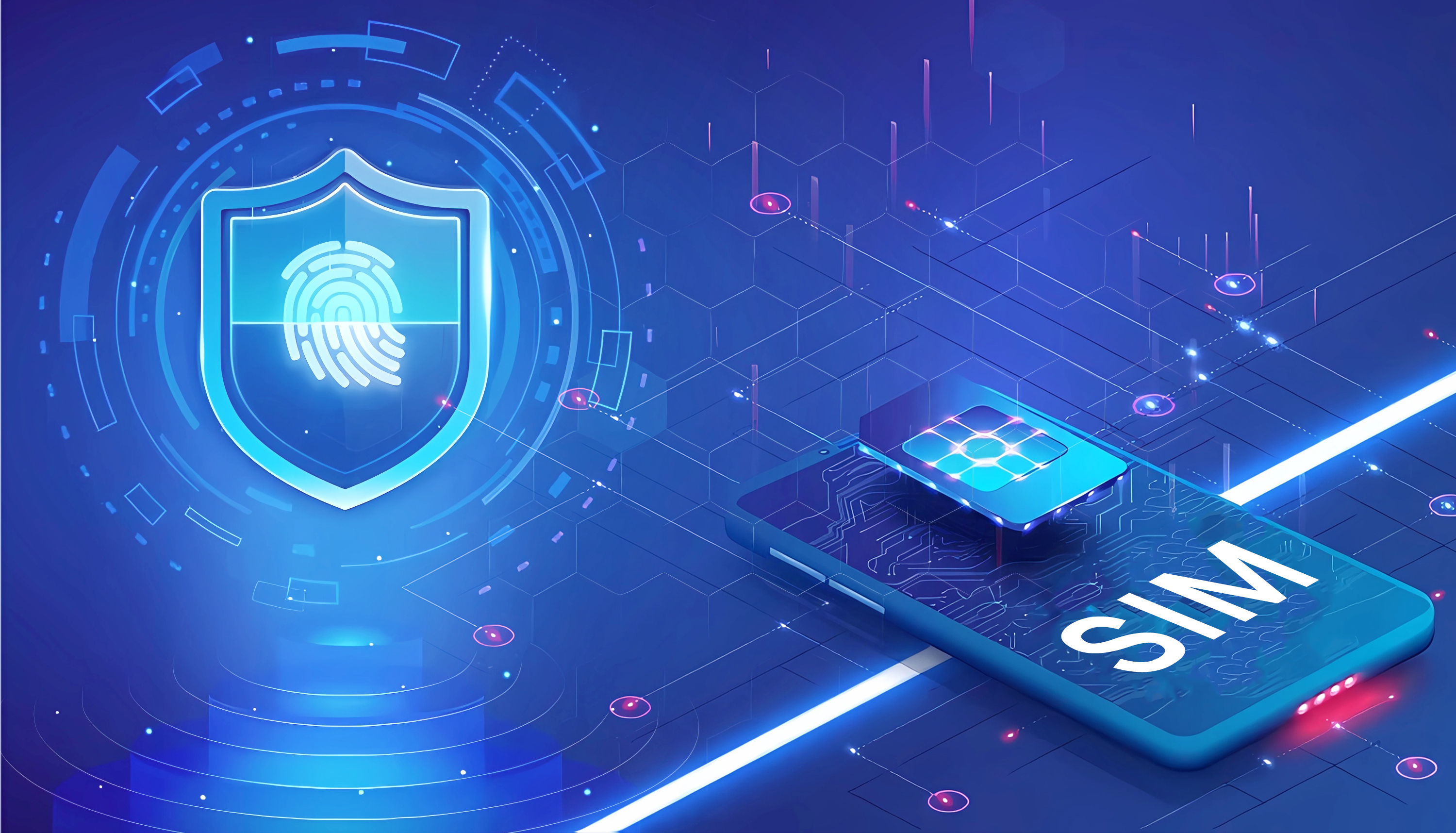
Biometric SIM registration is especially important in an era where the growing need for digital identity goes hand in hand with cybersecurity threats. Here are a few elements of its critical nature:
Enhanced Security
The need for personal information protection in today’s society has never been greater, and biometric authentication provides a solution that is more difficult to crack and less susceptible to theft than traditional passwords. Since biometrics are unique and difficult to replicate, biometric SIM card enrollment brings a higher level of security to the user.
Protect Against Fraud and Identity Theft
Fraud due to identity impersonation can be reduced through the use of biometric data. Cases of financial fraud related to cell phone accounts have been on the rise for the past few years, and biometric SIM cards can combat this by accurately verifying a user’s identity.
Improved User Experience
Biometric SIM cards simplify the authentication process by eliminating the need for users to memorize complex passwords or PINs, instead using their biometrics such as fingerprints or facial recognition, which significantly enhances the user experience.
Facilitating Regulatory Compliance
As cybersecurity regulations become increasingly stringent globally, the use of biometric SIM cards makes it easier for telecom operators and service providers to comply with regulatory requirements, especially when it comes to handling personal data and preventing unauthorized access.
Adapting to Smart Technology
The increasing prevalence of smart technology requires mobile devices to evolve with it to support new applications and services. Biometric SIM cards can seamlessly integrate with existing and future technologies to provide secure connectivity for smart homes, IoT devices, and more.
Biometric SIM card registration is becoming increasingly common around the world. This process enhances the authentication of the user’s identity by using unique biometric data. Here is a commonly followed biometric SIM card registration process:
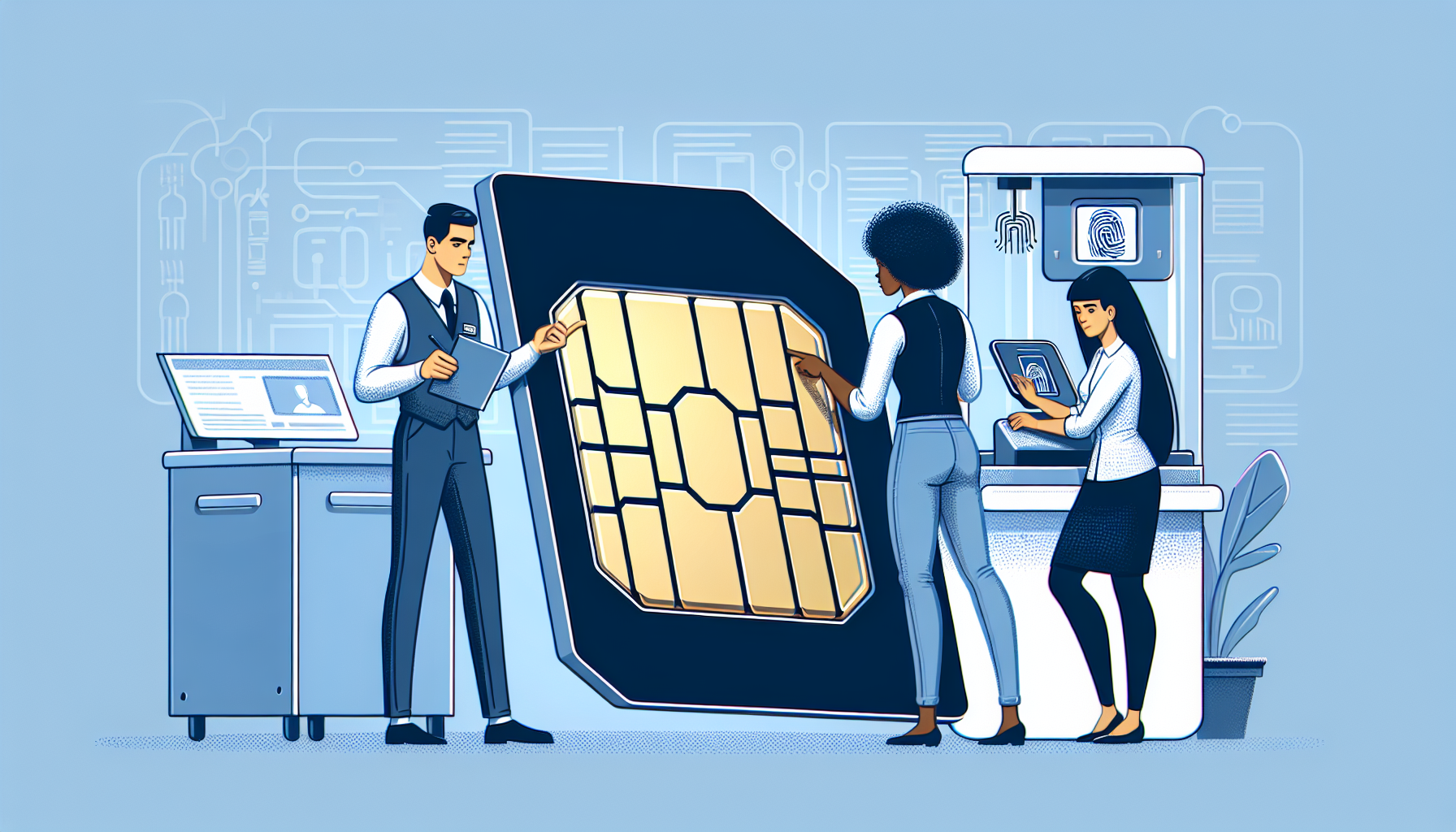
1. Data Collection
Users need to arrive in person at a designated registration center or service point, where professionals use specific equipment to collect biometric data. For example, devices for fingerprint scanning capture and record the unique patterns of fingers; facial recognition devices analyze facial features; and iris scanners can accurately read complex patterns in the eyes.
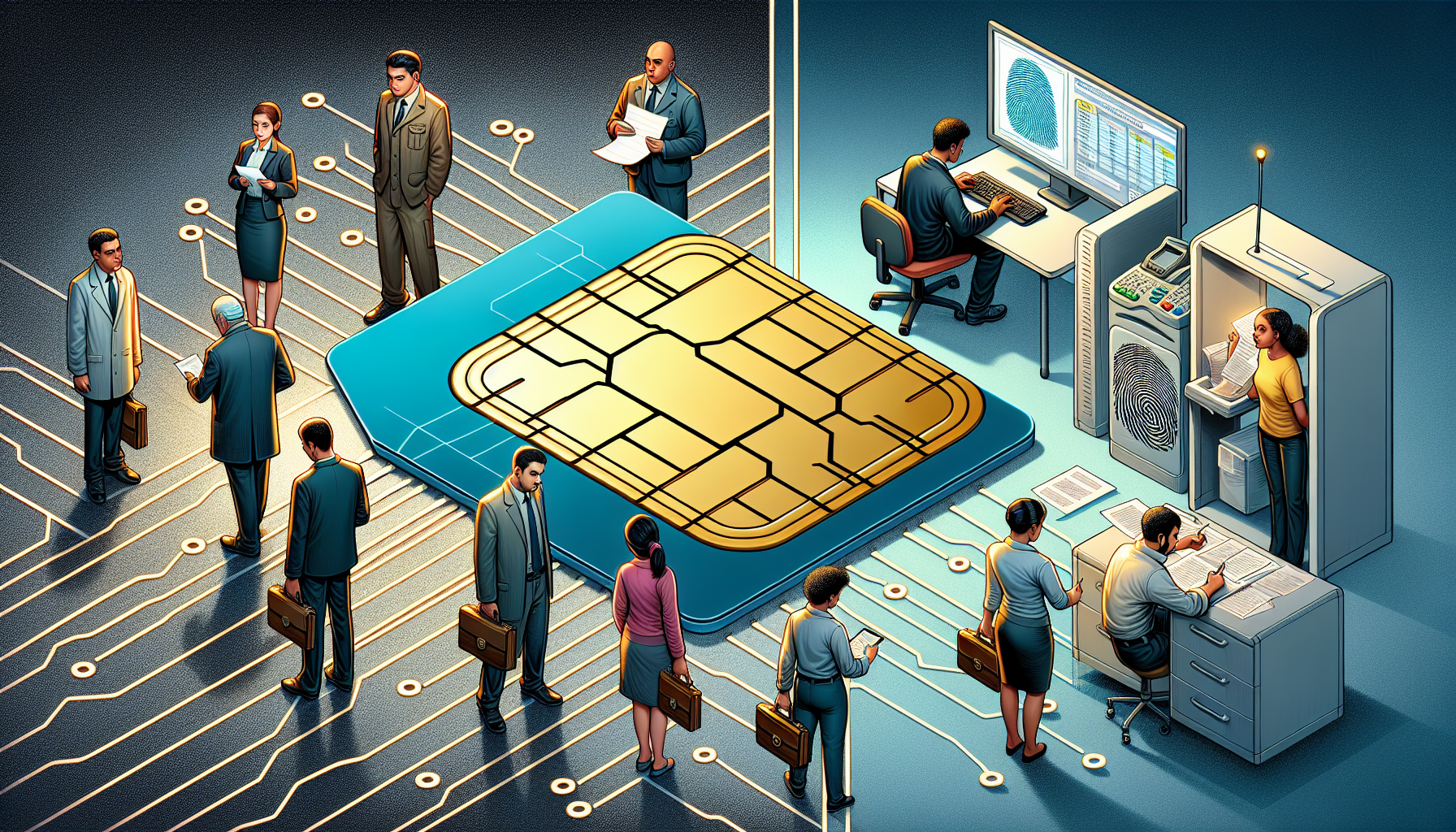
2. Data Verification and Entry
Once biometric data is collected, the service provider will conduct a careful quality review to confirm image clarity and data accuracy. These reviewed biometrics are then entered into a secure database. This database must meet the highest security standards to prevent data theft or tampering.
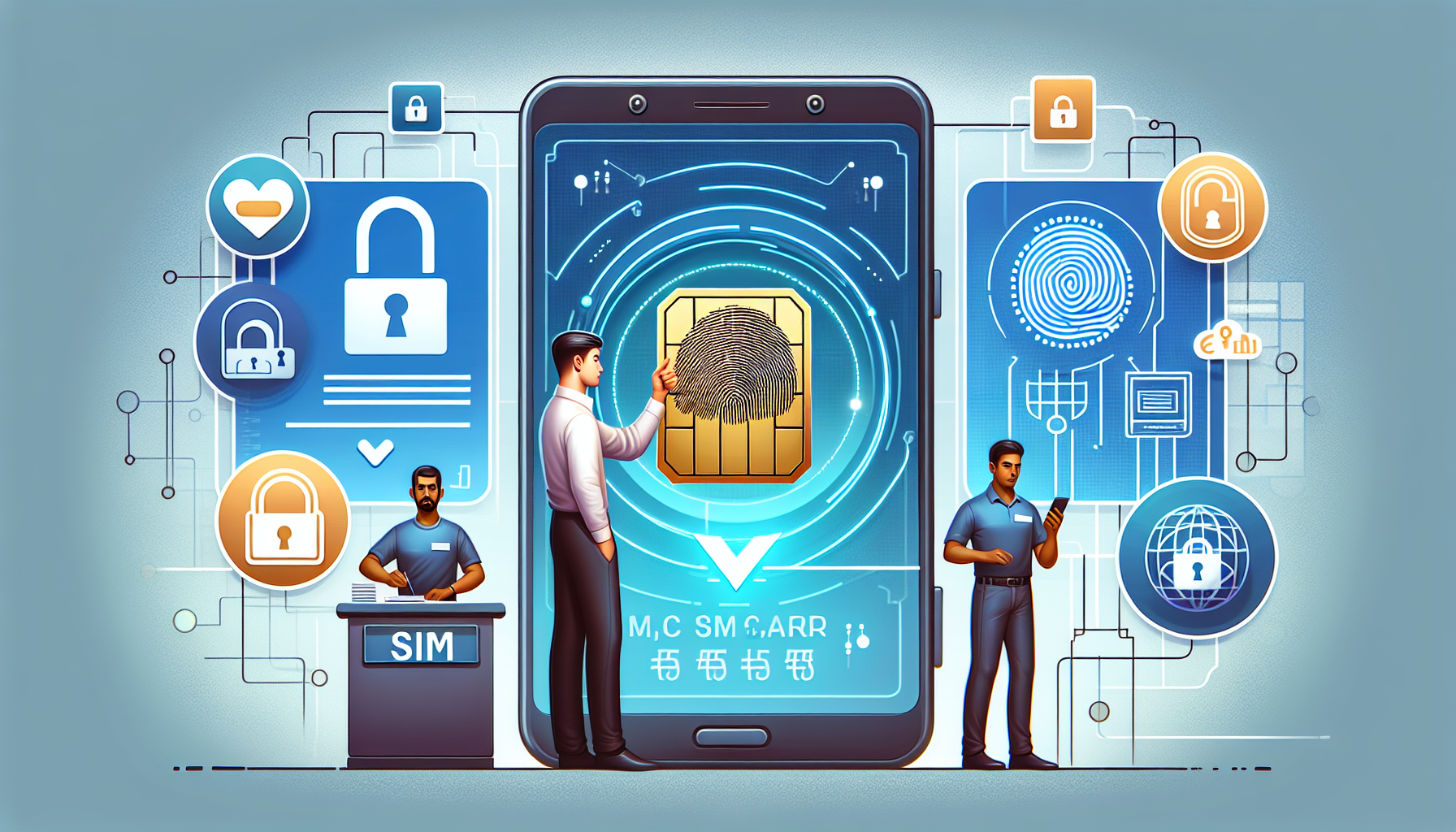
3. Identity Verification
Before being entered into the system, the user’s biometric information must be ensured to be unique and compared with existing data sets. This prevents identity reuse or identity fraud. Any hits to existing data will trigger additional checks.
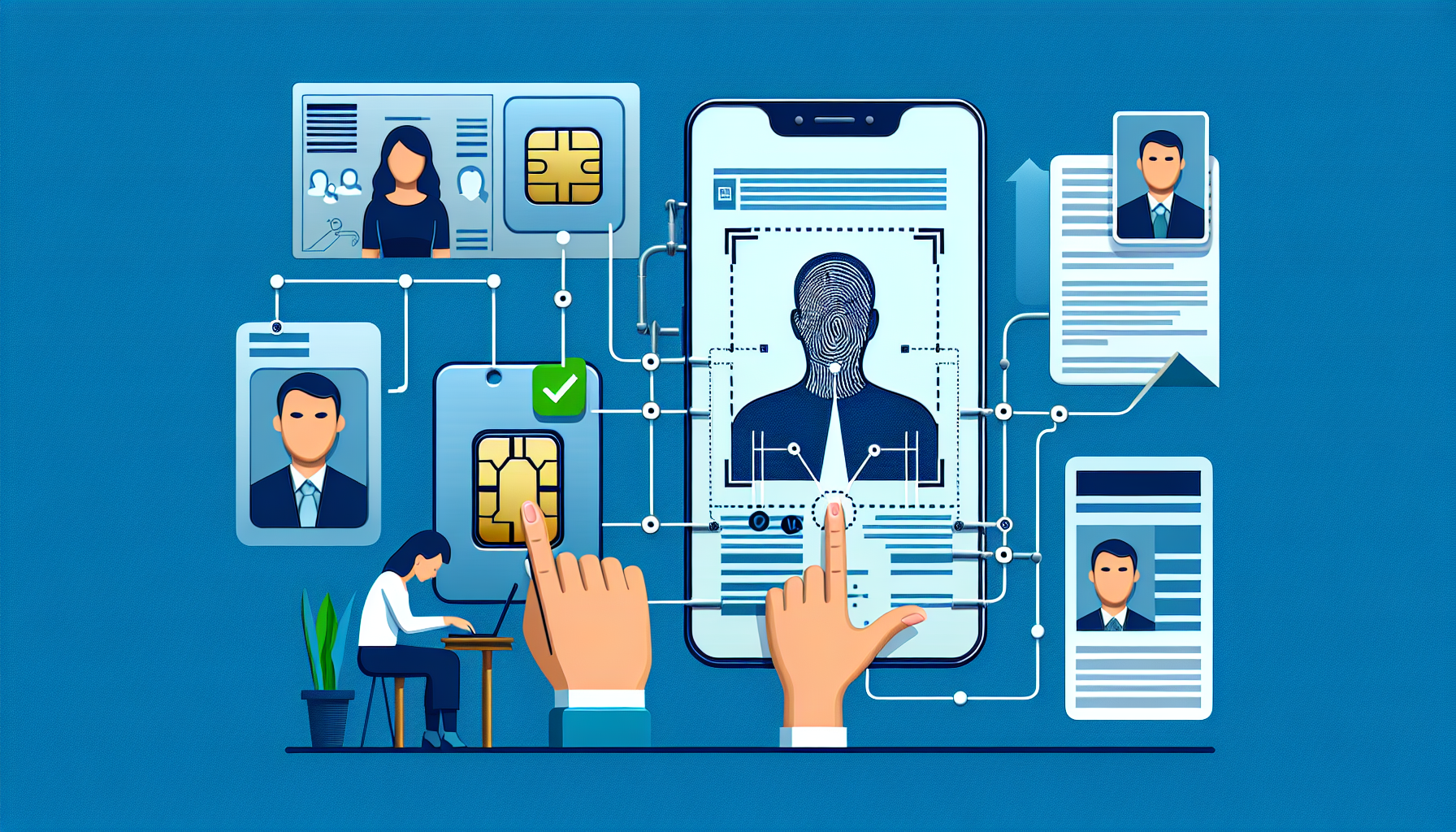
4. Control Measures and Audits
The registration process needs to meet regulatory requirements and have appropriate controls in place. Auditors will check whether the entire process is carried out by established operating procedures and regulatory standards, including all aspects of data collection, processing, storage, and transmission. Such measures guarantee the reliability of the process and the trust of users.
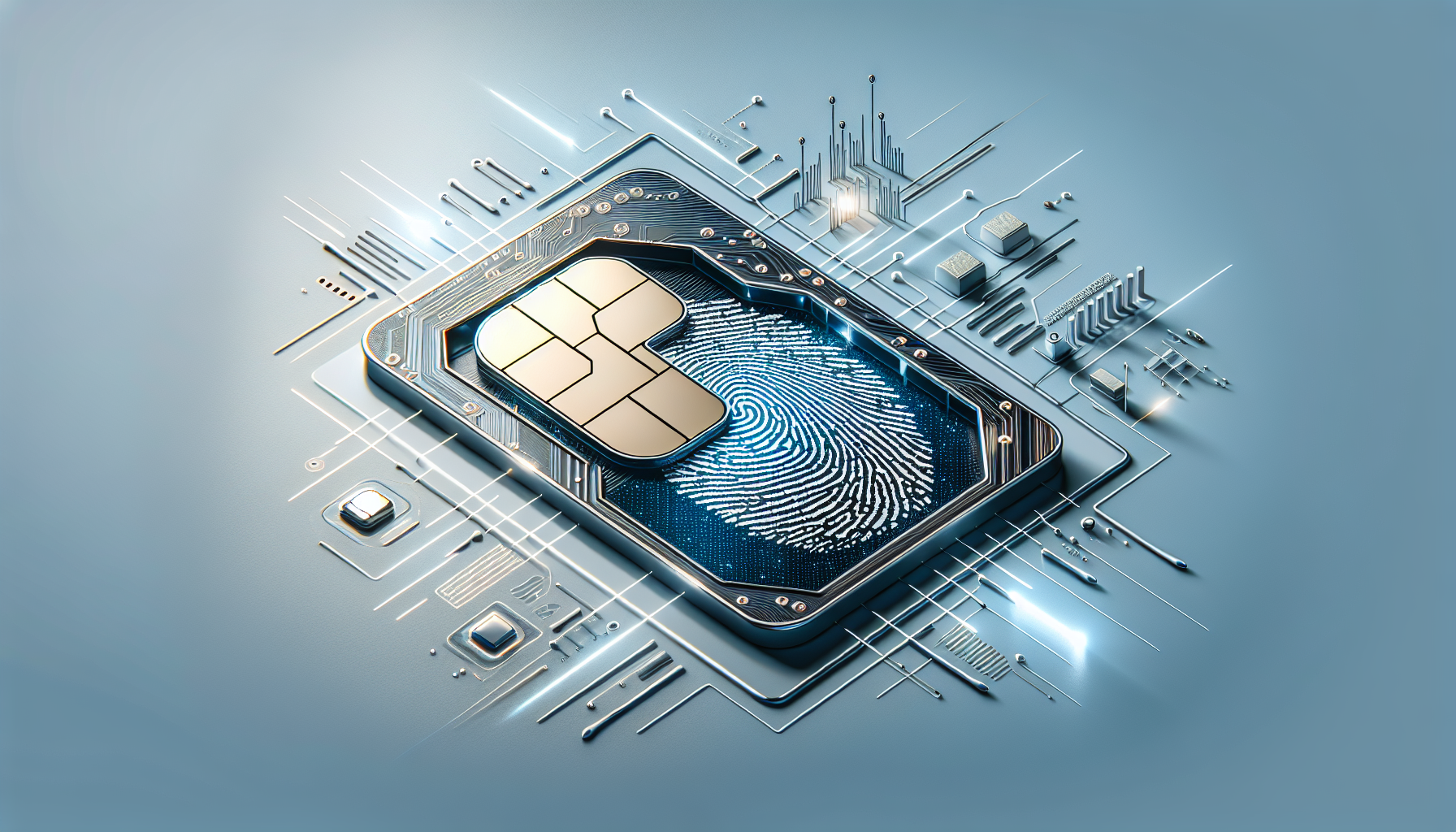
5. SIM Card Activation
After all checks are completed and the data is confirmed to be correct, the new biometric SIM card will be activated. The SIM card is linked to the user’s biometric information, ensuring security credentials for all future services and effectively preventing unauthorized use.
HFSecurity is leading the way in the communications industry with its innovative biometric enrollment technology. Its biometric SIM card enrollment solution transforms traditional enrollment methods by introducing a more secure and reliable authentication method.
Company Advantage

Innovative Technology: HFSecurity’s solutions utilize advanced biometric scanning technologies including, but not limited to, fingerprint, facial and iris scanning. These technologies combine machine learning and pattern recognition algorithms to ensure highly accurate matches and low false positives.

User Data Protection: The protection of user privacy is of paramount importance in HFSecurity’s enrollment system. The company has implemented multi-layered security measures to ensure that all biometric data is stored and transmitted securely and in full compliance with data protection regulations.

Enhanced User Experience: The solution works to streamline the user enrollment process. With a quick biometric verification step, users do not have to go through red tape and long waits, thus enhancing overall user satisfaction.

Efficient Enrollment Process: The solution provided by HFSecurity is optimized and designed to handle high volumes of registration demand and accommodate user traffic during peak hours. This can significantly reduce waiting times for both users and service providers.

Customized Services: Understanding that different regions and customers may have different needs, HFSecurity’s solutions are flexible enough to be customized. The company offers a full range of technical support and services to accommodate specific business models and regulatory requirements.

Tanzania Biometric SIM Card Registration
HFSecurity provided the solution and equipment for biometric SIM card enrollment in Tanzania. Halotel, one of the seven largest local telecom providers in Tanzania, implemented the project. HFSecurity offers a more efficient, streamlined, and stable solution for the operator. By implementing the KYC (Know Your Customer) process before issuing SIM cards, we optimize the verification steps and ensure the highest level of security for customer information.
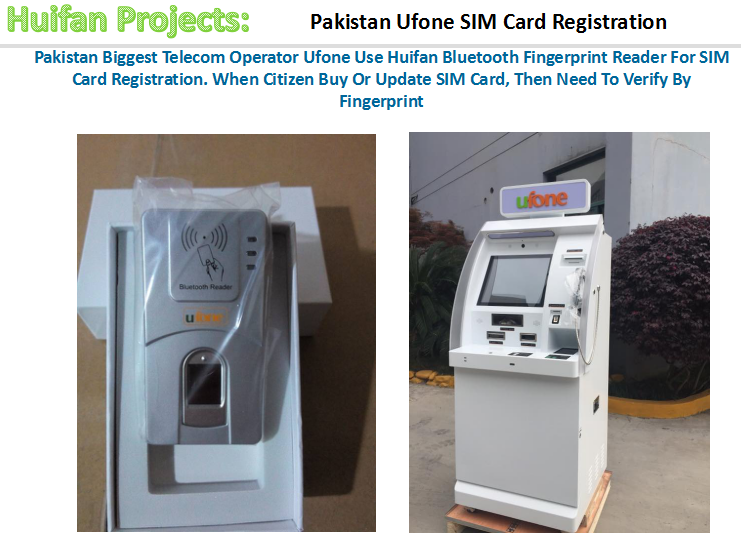
Pakistan Biometric SIM Card Registration
Ufone, Pakistan’s largest telecom operator, has taken an innovative step in the area of SIM card enrollment by choosing to partner with HFSecurity for the application of its cutting-edge HF7000 Bluetooth fingerprint reader. This smart device provides easy fingerprint verification when citizens purchase or renew their SIM cards, ensuring the speed and security of the authentication process.HFSecurity utilized the HF7000 to provide Ufone with a biometric SIM card enrollment solution that enhances the user experience and handles the high volume of enrollment requests, while also strengthening information security measures to safeguard consumers’ data.
Biometric SIM Card Registration Solution

In the field of digital identity authentication, biometric technology has become a new revolution in improving security and convenience. Biometric technology has expanded to the field of SIM cards, bringing us unprecedented security and efficiency. The birth of biometric SIM cards is a milestone in the revolution of personal identity authentication. It cleverly utilizes our unique biological characteristics – including fingerprints, faces, palm veins and irises.
So why was the biometric SIM card born? It stems from the urgent need to combat the security flaws of traditional SIM cards, such as the continuous emergence of SIM card duplication and identity theft, which call for us to use more advanced security mechanisms to protect users’ communication security and privacy information. In addition, the government’s requirements for strengthening national security have also prompted the widespread adoption of biometric technology in the field of SIM cards.
In the communications industry, SIM cards have always played a key role. However, with the increasing security threats, SIM cards with biometric functions have become particularly critical in ensuring the security of identity authentication. Biometric SIM cards not only strengthen the security of identity authentication, but also represent a significant improvement in our awareness of personal information security.
Biometric SIM cards, this innovative product, perfectly combines traditional SIM functions with biometric technology. This SIM card can record the user’s fingerprint, face or other biometric information, providing a more secure means of user authentication. This emerging technology significantly reduces the possibility of SIM cards being copied or used illegally.

